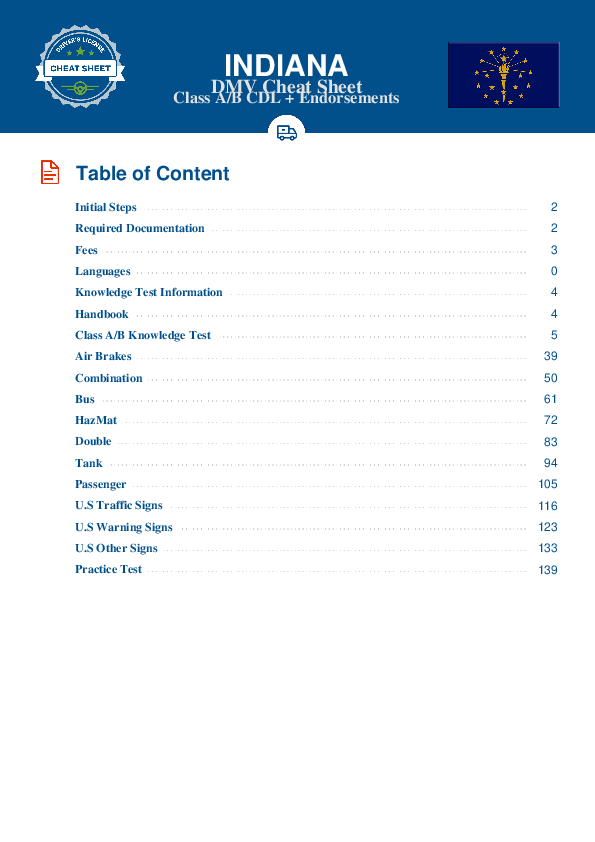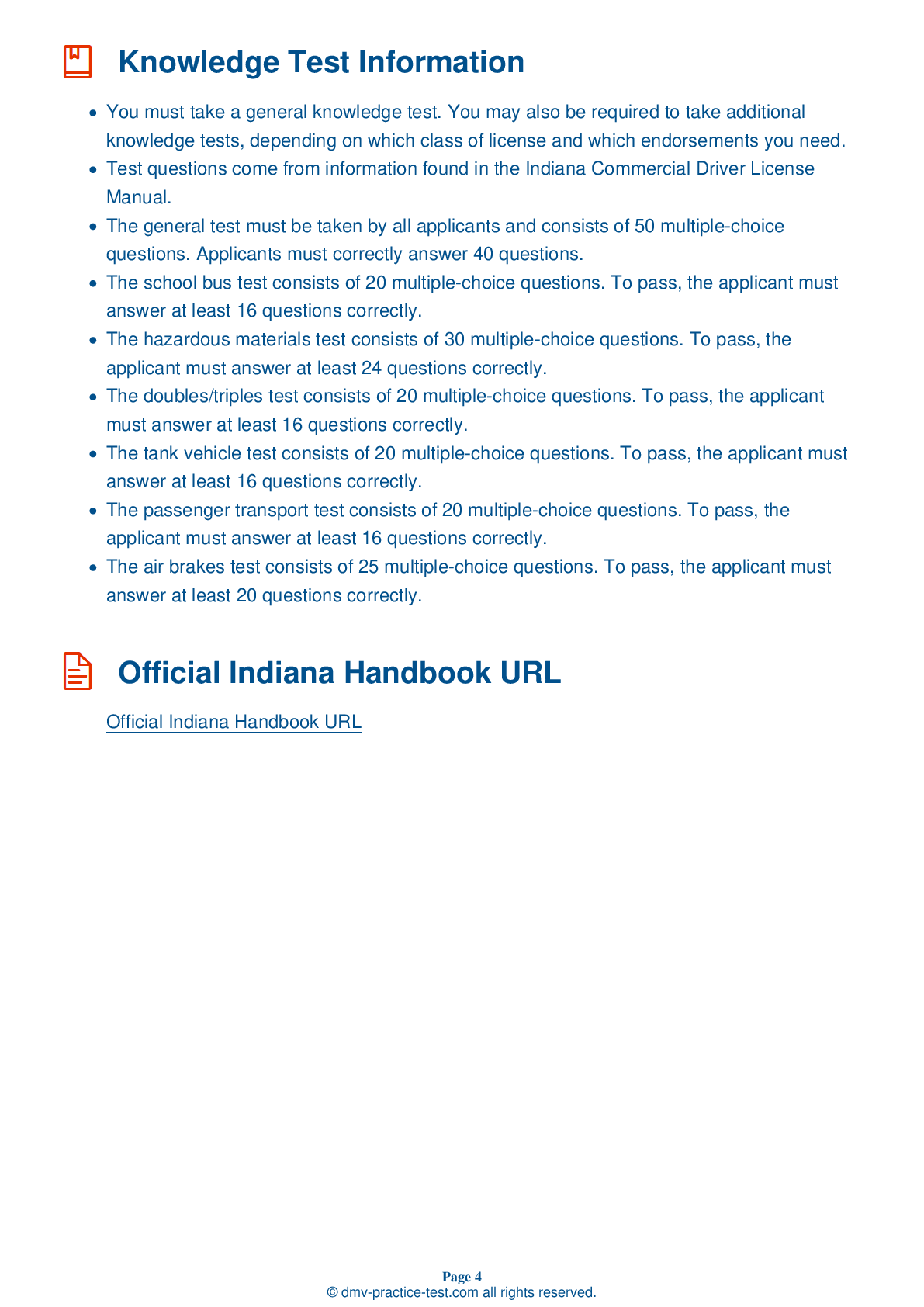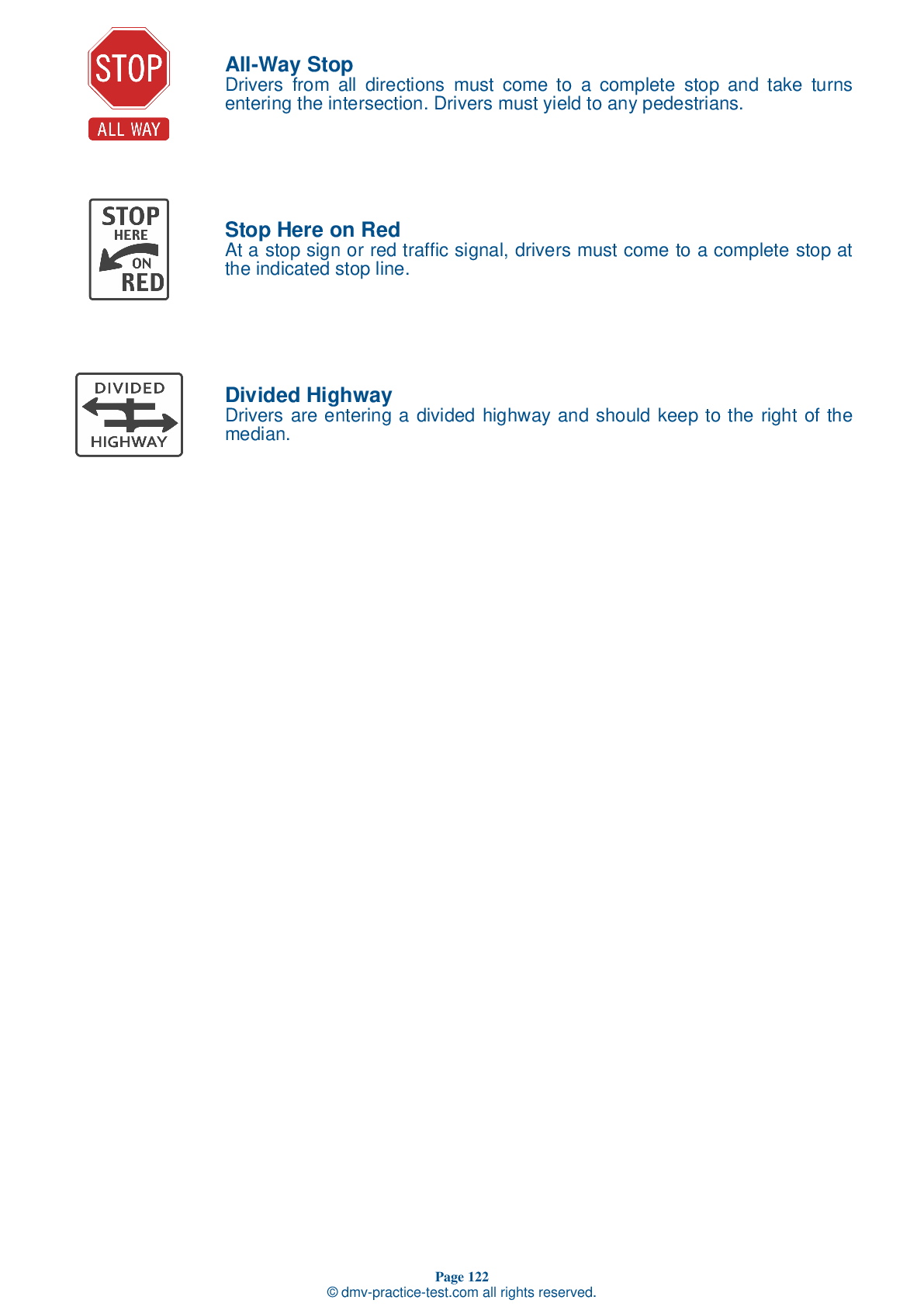HazMat #2
Hazmat Test | Indiana 2026 #2
On our website, we provide FREE practice - CDL hazmat test online! The official exam test consists of several obligatory parts, with all of them checking your knowledge of different blocks of road rules. If you need to obtain a IN CDL hazmat endorsement in 2026, practice as much as possible. Free sample tests published on our website will help you check and improve your knowledge and boost your grades. Please bear in mind that Indiana requirements for issuing a hazmat endorsement for CDL may vary from those established in other states.
30
24
20
1 . How many hazardous materials classes are there?
Two
There are nine different classes of hazardous materials. A class reflects the risks associated with a type of material.
2 . Hazardous materials shipping papers must include:
The country of origin of the materials.
Drivers must be aware of the risks associated with materials they are transporting. Hazardous materials shipping papers must include an emergency response telephone number.
3 . Identification numbers assigned to chemicals can be found:
At fuel stations.
The United States Department of Transportation (DOT)’s Emergency Response Guidebook (ERG) lists all hazardous chemicals and their assigned identification numbers.
4 . If a product requires a "Poison Inhalation Hazard" placard, the placard must be used when transporting:
The product in a leaking container.
For applicable materials, the "Poison Inhalation Hazard" placard and the appropriate hazard class placard must always be displayed, even for small amounts of the materials.
5 . A material’s hazard class reflects:
How the material should be loaded and unloaded.
There are nine different hazard classes. A material's hazard class reflects its associated risks.
6 . Which of the following is not an acceptable location to keep hazardous materials' shipping papers?
On the driver’s seat while the driver is outside of the vehicle
When the vehicle is being driven, hazardous materials' shipping papers must be kept in a pouch on the driver's door or somewhere else that is in clear view and within the driver's reach. If the driver is outside of the vehicle, the shipping papers should be kept on the driver's seat.
2026 Indiana | Frequently Asked Questions
To secure a CDL Doubles/Triples endorsement in Indiana, you must already have a valid CDL. Then, you'll need to pass the Doubles and Triples Endorsement Knowledge Test. This test covers topics like coupling and uncoupling, inspecting doubles and triples, and handling. After passing the test, you can add the endorsement to your CDL.
To obtain a CDL Doubles/Triples license, you must first have a Commercial Driver's License (CDL). You are then required to pass the Doubles/Triples Endorsement Knowledge Test. This test includes understanding of coupling and uncoupling, inspecting doubles and triples, and handling these vehicles. After successfully passing the test, you can add the endorsement to your CDL.
While Indiana does not specifically require specialized experience or training for a CDL Doubles/Triples endorsement, it's beneficial to have training in handling these types of vehicles. You must pass the Doubles/Triples Endorsement Knowledge Test, which covers topics like coupling and uncoupling, and inspecting doubles and triples. So, practical experience or training would help you pass the test.
Yes, to receive a CDL Doubles/Triples endorsement in Indiana, you must pass the Doubles/Triples Endorsement Knowledge Test. This written exam covers topics such as coupling and uncoupling, inspecting doubles and triples, and the proper procedures for driving these types of vehicles. After passing the test, you can add the endorsement to your CDL.
There's no specific skills test or maneuvers to showcase for the CDL Doubles/Triples endorsement. However, you need to pass the Doubles/Triples Endorsement Knowledge Test. This test evaluates your understanding of coupling and uncoupling, inspecting doubles and triples, and handling these vehicles. The CDL handbook provides all the necessary information for this test.
No, it's not permissible to operate double or triple trailers in Indiana without a valid CDL Doubles/Triples endorsement. Operating these types of vehicles requires specific skills and knowledge, which are tested during the endorsement process. Driving without the proper endorsements can result in significant fines and penalties, including the suspension of your CDL.
Yes, you can append the CDL Doubles/Triples endorsement to your current Commercial Driver's License (CDL). You don't need to initiate a new application for a CDL, but you will need to apply for the endorsement, pass the knowledge test, and pay any associated fees to receive the endorsement on your existing CDL.
Yes, there are limitations. Drivers with a CDL Doubles/Triples endorsement must adhere to specific rules, including maximum weight limits for trailers and load. They also need to follow rules related to coupling and uncoupling, and inspecting the doubles/triples. Additionally, they must not operate vehicles that exceed the endorsement's specifications. Violating these regulations can lead to penalties or loss of endorsement.
In Indiana, a semi-trailer's maximum length is 53 feet, and the combined length should not exceed 65 feet. For weight, a vehicle with a single or tandem axle can weigh up to 20,000 or 34,000 pounds respectively. The gross vehicle weight (including all trailers) should not exceed 80,000 pounds. These limits may vary depending on specific roads or bridges.
Yes, there are specific safety guidelines. Drivers must check that all couplings are secure, ensure the heaviest trailer is directly behind the truck, and maintain a safe following distance. Additionally, they must take extra care while turning due to off-tracking and avoid sudden lane changes or braking which could cause jackknifing. Regular vehicle inspections are also mandated.



